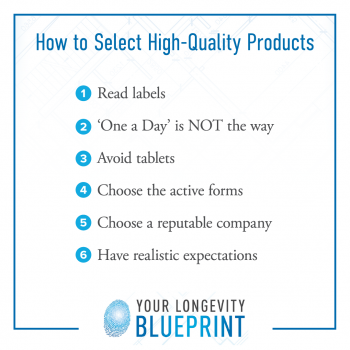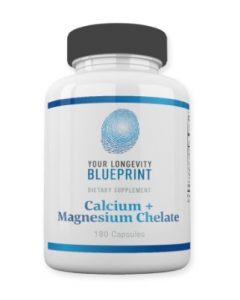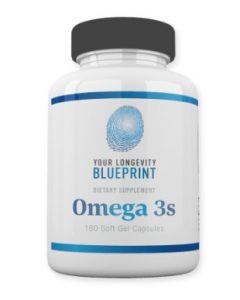

My patients ask me all the time if their supplements are building their health or a total waste of money.
You probably want know where to find the best products. I’ve heard many analogies comparing your body to a car. If you had a Porsche, would you put cheap gas in it? Of course not! Similarly, when you purchase nutrients for your body, the most amazing machinery you possess, you need to fuel it with the highest quality gas (nutrients). It has been reported that over 60 percent of Americans take dietary supplements, and that those who do so live longer (Council for Responsible Nutrition 2015). This may be due to the fact that these individuals have invested more in their health in general. Nevertheless, working to replenish your low nutrients is not harmful, but helpful.
So here are some tips for purchasing high quality products.
Read labels.
Read the label to better understand exactly what you are taking. For instance, when selecting an omega-3 product, I typically recommend patients look for products from small fish. Don’t take fish oil from tuna or salmon, as those are big fish with more mercury. Look at the label to see if the fish oil is sourced from sardines and anchovies, which are smaller. Also make sure the product is refined and distilled to remove any heavy metals. Research the company to verify that the fish weren’t captured in contaminated water. Also make sure the product has a decent amount of EPA/DHA in it. Some omega-3 product labels make the claim on the front to contain “1,000 mg omega-3s,” but when you read the label on the back, they may only have 120 mg EPA and 230 mg DHA. That’s not 1,000 mg. A filler with no therapeutic value may be making up the remaining 650 mg there. As mentioned in chapter 1 of my book Your Longevity Blueprint, I recommend many of my patients take higher doses of omega-3s—near 3,000 mg, with combined EPA and DHA. Not everyone needs that high of a dose. Get your omega-3 index checked to know for sure. It’s a part of the nutritional evaluation I like to order on many patients at my clinic, the Integrative Health and Hormone Clinic.
Another example: know the source when purchasing calcium. Cheap calcium is like eating chalk from a chalkboard. Gross! Some calcium products, like Tums, even contain heavy metals. It’s no secret—you can read it right on the label. Heavy metals are something you definitely want to avoid. The label will also reveal whether your supplements are gluten free, and whether it’s free of any other ingredients that your body is sensitive or allergic to. That includes the capsule itself along with any nasty additives that might be contained within, such as artificial colors, flavors, and sweeteners. One popular fiber supplement on the market contains aspartame. That doesn’t make sense to me, since many patients who need fiber have irritable bowel syndrome and likely can’t tolerate aspartame. Also avoid fillers and preservatives; they are simply unnecessary. You don’t need parabens in your vitamins either.
“One-a-day” multivitamin is “not the way.”
There’s no way any company can put high doses of nutrients into one tiny pill. If they try to heat up all those nutrients and compress them all into that tablet, chances are the nutrients become destroyed. The recommended dose of most high-quality multivitamins is four to six capsules a day – not one a day.
In general, avoid tablets.
To demonstrate why, drop both a tablet and a capsule into a cup of water—the capsule will dissolve first. Capsules are easier for your body to break down, especially if you have low stomach acid. I approve of liquids and powders, too. However, speaking in terms of digestion, the contents of a delayed-release capsule will make if farther down into your system, allowing for better absorption than a liquid or powder would. The sublingual (SL) under-the-tongue delivery system is also excellent, allowing nutrients to go right into your blood system.
In short, choose the best absorbed version of the nutrient.
For instance, take pyridoxal 5’-phosphate (P5P) instead of B6, take methylcobalamin instead of cyanocobalamin, and take folate instead of folic acid.
Reputation matters.
Most brands that are available from a licensed clinician are high quality. Think about it: in recommending that brand, the clinician is putting his or her name and reputation on the line. If they’ve done the necessary research, they should really only be offering what they feel is the best for you—their patient. At my practice, I’ve carried several brands over the years from amazing companies that test their products for purity, safety, and potency between batches and at the end of production. That’s how we can, for instance, guarantee the potency of our Longevity Blueprint probiotics at the day of expiration, where many companies only do so at the day of manufacturing. So, in my clinic, if the label says it contains 20 billion CFUs, that potency is not referring to the day of manufacture— it’s referring to the day of expiration, setting our brand apart.
A magnesium capsule is also guaranteed to have the dose on the label at the day of expiration. Additionally, the United States Pharmacopeia (USP) has set standards or guidelines for the good manufacturing practice (GMP) of products. Make sure that you are purchasing supplements from somewhere that is operating up to this standard. Ask your functional medicine provider to help identify what nutrients you should be taking.
Have realistic expectations.
When it comes to cost, be realistic about what you expect to pay for high quality supplements. Many high-potency probiotics cost $1 per day. If you are purchasing one that is $10 for an entire month’s supply, you must question what level of quality you are getting. Don’t waste a little money on junk.
That goes for your lifestyle choices as well—don’t spend your money on fast food and then complain that you have to supplement. Make better choices with your lifestyle, and spend your hard-earned dollar on quality supplements for your health.
That’s your best investment!
To take your Supplements one step further, read this bonus info:
With Your Longevity Blueprint Supplements, we also focus on 3 more things.
1. Evidence based Formulations
We use evidence supported by human clinical trials and published in peer-reviewed scientific journals, and we have raised the standard of the supplement industry to ensure that you benefit most.
2. Superior Raw Materials
We use superior raw materials seldom seen in the supplement industry and adhering to strict testing standards for purity, we ensure that you are getting exactly what is on your ingredient list. We choose which countries our ingredients are sourced from and refuse ingredients that do not meet these strict standards.
3. Therapeutic Potencies
Our products contain the correct Therapeutic Potencies for each ingredient based on established research.
Your Longevity Blueprint represents what’s good about the supplement industry.
Formulations that work…to get you better, faster.


